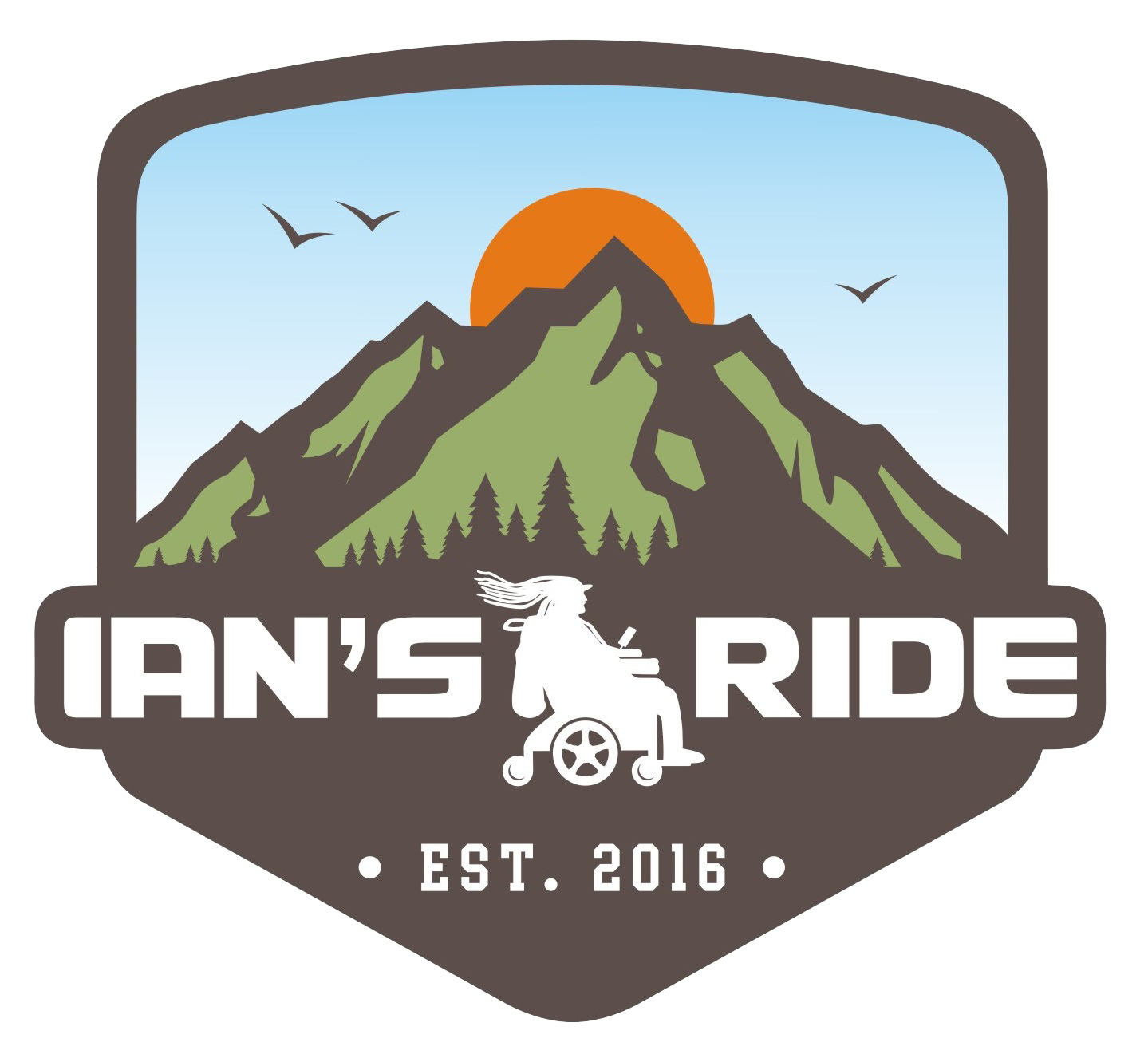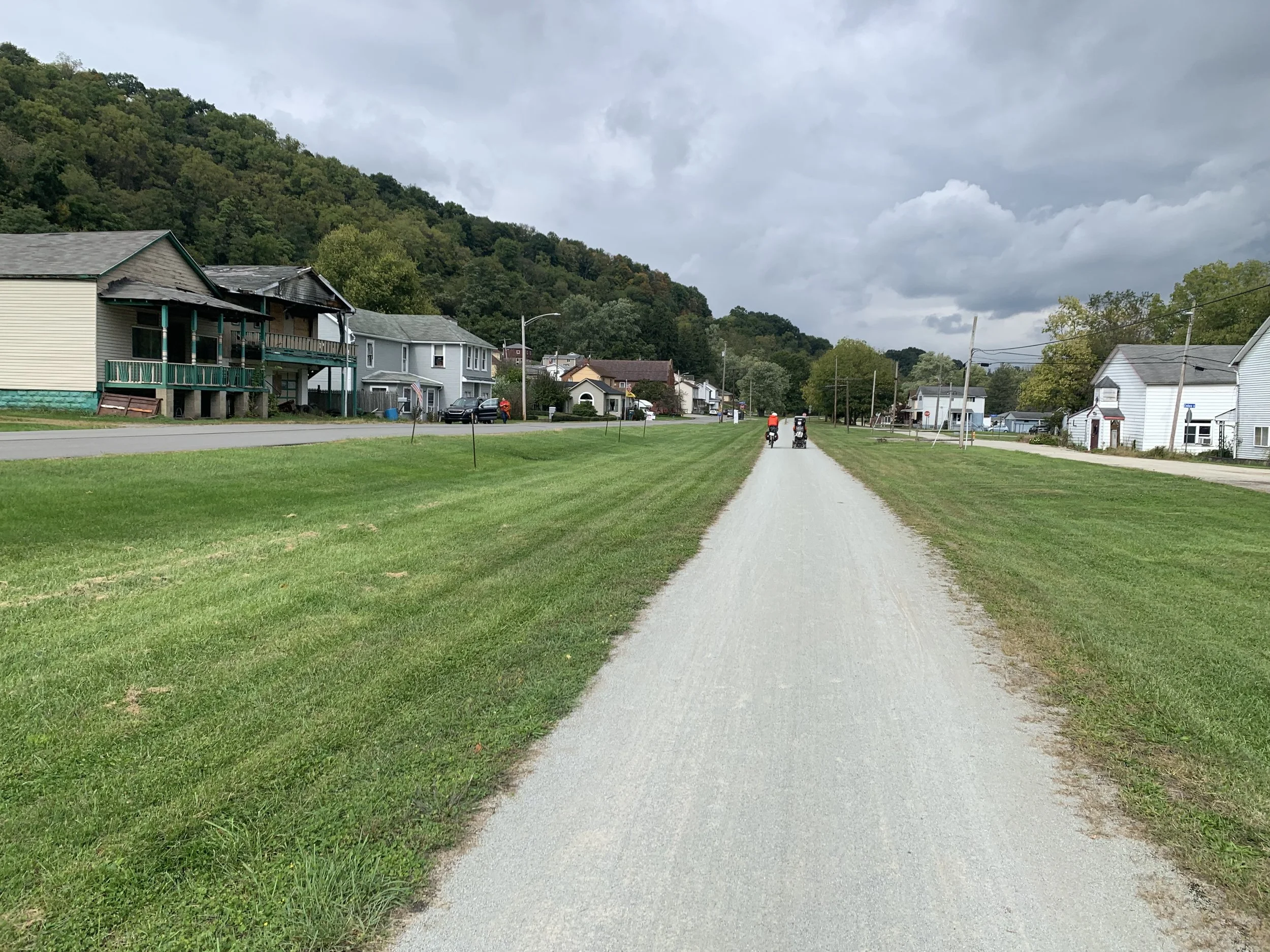Riding the rails
When we left Washington D.C., we left a major metropolitan area. Obviously, our nation’s capitol is a bustling region, surrounded by supporting cities and bedroom communities. I remember looking across the Potomac at the high rises of Arlington, VA when we started off on Day 1. It was busy, busy, busy but then we left that behind and enjoyed the quietude of the Chesapeake and Ohio (C&O) Canal Trail along with the majority of the Great Allegheny Passage (GAP). For a week, our trail rides were quiet. For days, we never went into any towns while on the C&O. We would go by small towns, but often we’d never even see so much as a house or a small shop. The C&O is more isolated than a glance at maps would suggest. Things got even quieter and more remote on the GAP after we passed through Cumberland. Nothing near as vast as the remote wildernesses we have in the American West, but quiet nonetheless, with small quaint towns here and there nestled in the woods and rolling hills.
Today that changed as we dropped further down the Youghiogheny River into its lowlands via an old P&LE (Pittsburgh and Lake Erie) railroad path that was retired in the early 1990s. How did the 90s become so long ago?
The last two nights we stayed in Connellsville. All night long we heard the rumble of trains going by, accentuated by the squeals of brakes and metallic wheels. Lately, as we’ve ridden the trails we’ve seen a lot of train traffic go by. I speak now of the active railroads. There are those such as the P&LE that have been retired and then converted to trails for people like us.
Day 8 begins from the Comfort Inn of Connellsville
This morning was damp and dreary. We left straight from the hotel in Connellsville, which was right by the trail at mile marker 89. Jimmy went on an expedition to get gloves for him and Dr. B. It has been chilly. Throw in showery weather and hands and feet get cold quickly. Both yesterday and today I was well bundled up in my trusty Arc’teryx jackets and pants. Over my pants and checkered Vans we set up my Diestco checkered Van chaps. On my hands I’ve had wool gloves, over which we put plastic bags when it rains. Finally, on my head I had my hella warm Alestake Brewing hat. Once again, thanks to all who have provided the gear to make this trip possible! Today Dr. B and Jimmy wore wool socks which provide a little more warmth than their checkered Van socks, but they needed more for their hands. Jimmy had to visit a few stores, and he finally caught up with us at mile 10 for the day (GAP mile marker 99). He got Dr. B a nice pair of insulated biking gloves from a bike shop and for himself he found a pair of cold weather leather work gloves from a hardware store. They add to the interesting looks that these guys have been cultivating for themselves.
It rained a few times on us. At one point we retreated under a picnic area overhang to wait out the heaviest shower of the day. Dr. B and Jimmy’s feet got soaked, but all in all it wasn’t too bad. Later, Dr B really helped me out by wringing out my sopping dreadlocks.
Thankful for some cover
Nancy, who knows how to dress.
Dr. B has many talents.
Mile 100 of the GAP! We love to celebrate the milestones!
At mile marker 100 we met Nancy from Kentucky, who was also sporting an Arc’teryx rain jacket. We immediately clicked and chatted for a little while.
Turkey herding
As we passed through urban-wildlands interfaces today, we saw a fair amount of wildlife. We passed by two flocks of turkeys (native to this area!), a coyote, a baby black panther that Jimmy insists was a black domesticated cat, a ruffled grouse that Dr. B insists was a chicken, and a lot of deer. Chipmunks and squirrels darted across the trail and risked gruesome deaths beneath our wheels
At one point, we passed an acid mine waterfall that is a direct result of Ocean Coal Company’s Ocean No. 2 mine established in 1900. We could smell sulphur. Jimmy saw a sign about pyrite and Dr. B speculated that pyrite must consist of iron sulfide. We looked into it, and sure enough, Dr. B was right. I guess he is qualified to teach chemistry. Every once in a while he’s actually right.
A moment for a chemistry lesson
We could tell that we were getting closer to Pittsburgh, which has a history of industrial power. The home of the Pittsburgh Steelers was once the pinnacle of American steel production, and extraction and manufacturing once made it America’s eight largest city. The Pittsburgh coal seam, the largest and most lucrative coal bed in the eastern US, played a big role in this as well. This is what Ocean Coal Company and many other companies over the centuries have exploited.
Things turned really urban as we approached McKeesport, the finish line for today. We were on roads for a bit, then back to trails. Tomorrow we go from there to Pittsburgh. Then we’ll shuttle to the start of the Montour Trail on the west side of the Pittsburgh area. It should be fun!
Approaching McKeesport. Things are getting urban.
Proud Partner of



